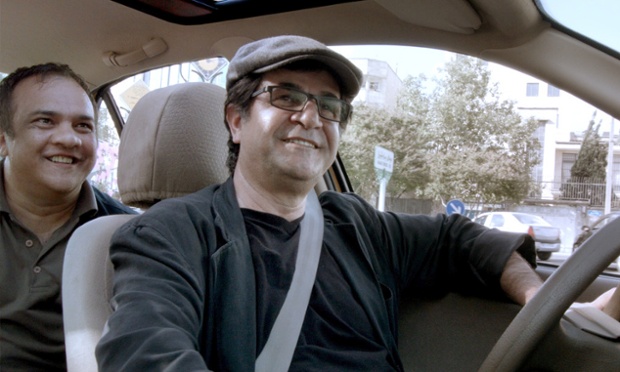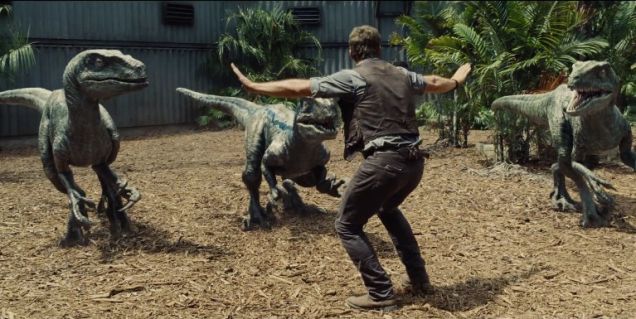Queen of the Desert (2015): Written and
directed by Werner Herzog. Starring: Nicole Kidman, James Franco,
Damian Lewis, and Robert Pattinson. Running Time: 128 minutes.
Rating: 2/4
**for safety’s
sake, a minor spoiler warning, since I can’t really talk about this movie
without comparing it to the historical record**
Gertrude Bell is easily one of the
most remarkable, brilliant, fascinating, complex, and downright badass women
you’ve never heard of. Compelled early
on to leave the straightjacket of Victorian English high society, she traveled
extensively throughout the Middle East prior to, during, and immediately
following World War 1, developing almost unparalleled knowledge of and
appreciation for the rich cultural, architectural, and artistic history of the
various Arab and Bedouin tribes she encountered. She quickly became completely fluent in
Arabic, and through her linguistic and diplomatic skills, she gained the
personal trust of some of the most important and powerful Arab princes of the
time. After the fighting ended, she and
her close friend T.E. Lawrence played perhaps the biggest role in creating the Middle
East as we currently know it, helping define the modern-day (and entirely ahistorical)
borders of Syria, Lebanon, Iraq, Jordan, Kuwait, and Saudi Arabia, ensuring that
the prince Ibn Saud gained regency over Saudi Arabia, and seeing that two of
her closest friends, the brothers Faisel and Abdullah Hussein, received rule
over, respectively, newly-created Iraq and Jordan.
It is an incredible legacy to try to
fully comprehend, one where her own personal triumphs are arguably overshadowed
by the very dark and violent legacy her influence over the shaping of the region
still has. Saudi Arabia and Jordan are
still ruled by these respective families to this day, and the Saudi family in
particular has been and remains one of the biggest financiers of Islamic
fundamentalism in the world. The artificial
borders she and other British officials insisted on creating, which threw
together combustible mixes of religious and ethnic groups that had long been
antagonistic towards each other, were combined with top-down, authoritarian
styles of government that, together, have been the genesis of almost a century
of violent, armed conflict, culminating in the violence we now see consuming
Syria, Iraq, Lebanon, and Yemen.
I begin with this brief review of
geopolitical history in order to provide you with at least a small idea of just
how much ripe material for a great movie there is imbedded in the story of
Gertrude Bell. Her own experiences are
remarkable enough, and when you also consider how her shadow still lingers over
the Middle East to this day, you’ve got enough there to make another historical,
socio-politically relevant masterpiece like Selma
or 12 Years A Slave. Or at the very least another Lawrence. What we get, much to my disappointment, is
considerably less than that.
We start with a very rushed and
exposition-heavy opening, meant to establish Gertrude’s restlessness, reputation
for getting into trouble, and fervent desire to escape Britain. Her father, always willing to accommodate (until
he isn’t at a later point in time) gets her an assignment with a relative in
the consulate in Persia (today Iran).
This was the first encounter with the larger world that would lead
Gertrude to set off on her later wanderings.
It was also the first of her several forays into romance (none of which
ended happily)- she falls in love with one of the lower officials, Henry
Cadogan (played here by a still-stoned James Franco), but since he is of
neither money nor high birth, her father says no. She returns to England for a time to try to
convince him otherwise, but her plans are tossed completely in the air when
word arrives that her beau has died quite suddenly and (of course) tragically.
It’s a breaking point, of sorts-
with nothing to hold her back, she sets her sights on the larger Middle East,
at this time still mostly under the heel of a dying Ottoman Empire. With a few trusted Arab guides, she sets off
on regular forays into the wastes of the desert, drawn to how dream-like and
free her life there is. It is during one
of her first trips to a British excavation site that she meets a young T.E. Lawrence
(Robert Pattinson), and the two strike up a deep, lifelong friendship, anchored
by their mutual appreciation of Arabic culture and the immense amount of
history to be found in the region. Through
a series of harrowing escapades, she identifies the key power players amongst
the tribes, and as a result, she becomes increasingly invaluable to a British
government hoping to divvy up the spoils of the coming war, even though her
presence and expertise are about as divisive as you can imagine- some see her
as a pestering nuisance, and others fall head-over-heels for her
(literally).
Given the depth of narrative
potential here (only some of which I’ve had the space to mention), it’s
actually quite astonishing to me how little of it ends up on-screen. I’m really kind of in shock. Up to this point, I would have said Tomorrowland was the biggest
disappointment of the year, but at least Tomorrowland
had some sequences of true cinematic poetry.
Queen of the Desert, on the
hand, wanders like Gertrude herself through the directionless desert, with no
effort to wrestle the disparate and scattered moments from her life into
anything resembling a cohesive narrative.
This is especially true in the
second half. We get bits of the information
she gleans during her travels and are provided some sense of its later
importance, and while I was able to piece together what was I was seeing, I
think I have an unfair advantage over most viewers in that I have actually read
the biography of Bell the screenplay was (largely) based on. None of the many, many, MANY threads
connecting the events surrounding Bell, Lawrence, and the war and our present
world are touched on, except in the most cursory of blink-and-you’ve-missed-it
ways. Even the easy catch, telling her
story as a heroic triumph of a kickass woman over that damn, silly patriarchy,
is mostly ignored. A few moments of her
telling off British officials for presuming to give her orders are the sorts of
scenes that should be definitive for a film like this (or at least
Oscar-baiting), but because they occur with no setup and with no indication of
how much she had to go through to get that point, they inevitably fall
flat.
Perversely, the most structurally
and tonally cohesive section of the entire film is the least interesting part
of it, specifically Bell’s first dating misadventure with James Franco’s
Cadogan at the Persian embassy, which takes up almost a third of the entire
running time. It is, perhaps, important
to understanding what later motivated her, but it’s treated as an epically
tragic short film in its own right (not to mention that it takes a VERY big,
and in my opinion inexcusable, liberty with the circumstances of the man’s
death). And it’s just not that
interesting, especially when compared with all the other heady stuff the film
could have focused more on later.
All of this is a real shame, because
the movie does at least look very good (this is still Herzog, after all), and
the cast assembled (Franco aside) is more than up to the task of playing their
respective characters. This was a great
role for Kidman, and I’m quite sorry she didn’t get more, less romance-obsessed
material to work with. And- although this
will be heresy for many- Robert Pattinson continues to prove the Twilight films a fluke by holding his
own quite well as Bell’s contemporary, the much-more-legendary T.E. No, it’s no Peter O’Toole- no one can do Peter
O’Toole- but he effectively elevates the criminally small number of scenes he’s
in, and honestly, I would have gladly taken more.
Ultimately, the movie is not
actively bad- I have certainly seen worse this year- but it doesn’t soar the
way I’d hoped, the way it should have. Viewers
with no previous knowledge of Bell or of the history she was part of will hardly
leave the theater better informed than before.
Which just might be the worst possible outcome for this type of
film. Gertrude Bell has gotten a
shameful lack of attention in our culture, long deserving of her own
biopic. She deserves a better one that
what she got here.
-Noah Franc









